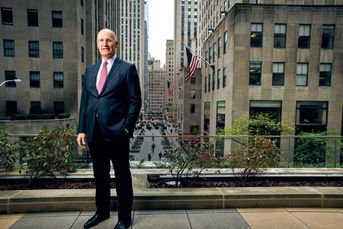Advisers unfazed by Fed’s bank stress test results
The results of the Federal Reserve's examination of the nation's 19 largest banks don't adequately characterize the state of the financial industry, according to 75% of financial advisers responding to a question in an InvestmentNews poll.
Asked Friday about the results of the government’s stress tests, 564 advisers offered a variety of opinions.
Of those answering the question, 61.5% said that the most significant fallout from the stress tests will be that weaker banks will merge or be acquired. But more than 87% said that banks unable to boost capital to acceptable levels within six months should not be nationalized.
When asked how the results of the tests would affect their investment advice, just 17.4% of respondents said that they would be more willing to direct client assets to financial stocks. Some 23.9% said that they would be less willing, and 58.7% replied “neither of the above.”
The stress tests were designed to assess the health of the major U.S. banks and determine whether they could handle a deepening of the recession. The results, released Thursday, found that 10 of the 19 largest banks needed to bolster their capital by a combined $75 billion.
For example, Bank of America Corp. of Charlotte, N.C., needs to raise $33.9 billion, more than any other bank, followed by Wells Fargo & Co. of San Francisco with $13.7 billion and Detroit-based GMAC with $11.5 billion.
The tests showed that the banks need very little new federal bailout money, but still must boost capital through stock offerings, asset sales or other means.
Richard Bové, a bank analyst with Rochdale Securities LLC of New York, said that the results of the tests were about what he expected — an opinion shared by 60.1% of respondents in the InvestmentNews survey.
Still, he thinks that the financial industry is in “much better shape” than the tests show.
“They are using loss ratios that the banking industry never had, and that we’ve never seen in the history of the U.S.,” Mr. Bové said. “As a result, these numbers are far more negative than we are actually going to experience in the real world. The government is demanding capital increases that will overcapitalize these companies.”
House Financial Services Committee Chairman Barney Frank, D.-Mass., is also encouraged by the results.
“I cannot judge the technical nature of the bank stress tests, but I think the general perception was that things were worse than they are,” he said in Boston on Friday at the annual meeting of the Financial Industry Regulatory Authority Inc. of Washington and New York. “The stress tests showed that things were not as bad as people had thought.”
Mr. Frank said he believes that banks will be able to raise the capital they need privately, and won’t need a new infusion of government funds.
Another likely outcome is that the government will push out top executives at some of the weakest banks, according to Lisa Dieter, investment manager at the Highland Park, Ill., office of Chicago-based Mesirow Financial Holdings Inc.
“I don’t agree with it at all, but that seems like the most palatable solution from a politician’s perspective, because it’s the type of action people are crying for,” said Ms. Dieter, whose firm manages $32.2 billion in assets.
Weak banks that must raise “a lot of money relative to their market cap” may have trouble attracting investors, said James Sinegal, an equity analyst on the banking team at Chicago-based Morningstar Inc.
But with banks so beaten down, some advisers see the likelihood of an upturn.
“Once the fundamentals are cleared and understood, we’ll see a huge lift in the financials,” said Brian Terry, vice president of investments and operations at Financial Management Concepts Inc. of Winter Springs, Fla., which manages $85 million in assets.
“Financials are one of the leaders in the market today from a return standpoint, and from a technical standpoint, it’s also worth putting money in the sector,” he said. “But I’m not in favor of buying individual stocks; I’d rather invest in a basket.”
Learn more about reprints and licensing for this article.







